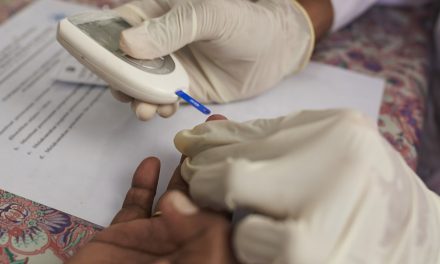A collaborative study led by researchers from the University of Rochester Medical Center (URMC) and the Mary Cariola Center has revealed promising findings regarding COVID-19 prevention measures for children with intellectual and developmental disabilities (IDD). Published in PLOS ONE, the study suggests that optimizing airflow and filtration in schools could play a crucial role in reducing COVID infections among this vulnerable population.
Throughout the COVID-19 pandemic, children with IDD and their families faced unique challenges, with many navigating the complexities of remote learning and heightened health risks. The Mary Cariola Center, a special education school in Rochester, NY, recognized the importance of implementing effective prevention strategies to safeguard the health of its students, who often have severe IDD and complex medical needs.
Collaborating with URMC researchers, administrators at the Mary Cariola Center focused on assessing airflow and filtration within the school as potential avenues for enhancing COVID-19 prevention measures. Dr. Martin Zand, a leading researcher involved in the study, emphasized the airborne transmission of COVID-19 and the importance of efficient ventilation systems in mitigating the spread of the virus.
Using carbon dioxide levels as an indicator of ventilation quality, researchers evaluated 100 rooms across the Mary Cariola Center campus. The results indicated generally adequate ventilation levels, with only a few rooms exhibiting suboptimal airflow for extended periods. However, moderate carbon dioxide levels were observed in many rooms, suggesting areas for improvement in airflow.
Furthermore, the study identified a correlation between COVID cases and air filtration systems. Rooms equipped with high-efficiency MERV-13 filters, capable of capturing more virus particles, recorded lower numbers of COVID cases compared to those with older, less efficient filtration systems.
Dr. Zand underscored the importance of a multifaceted approach to COVID-19 prevention, emphasizing the need for strategies such as masking, vaccination, and ventilation. The findings from this study have informed ongoing efforts at the Mary Cariola Center to enhance ventilation systems and improve overall safety measures on campus.
While the study focused on airflow and filtration, it was part of a broader initiative led by URMC researchers to implement comprehensive COVID testing and prevention strategies at the Mary Cariola Center. By combining multiple approaches, including testing, ventilation improvements, and early case detection, the collaborative effort aims to minimize the risk of COVID transmission among students and staff.
The study’s findings offer valuable insights into COVID-19 prevention strategies tailored to the unique needs of children with IDD. As schools continue to navigate the challenges of the pandemic, optimizing ventilation systems and implementing evidence-based interventions are crucial steps toward ensuring a safe learning environment for all students.
For more information on the study, refer to the publication titled “Ventilation during COVID-19 in a school for students with intellectual and developmental disabilities (IDD)” in PLOS ONE.












